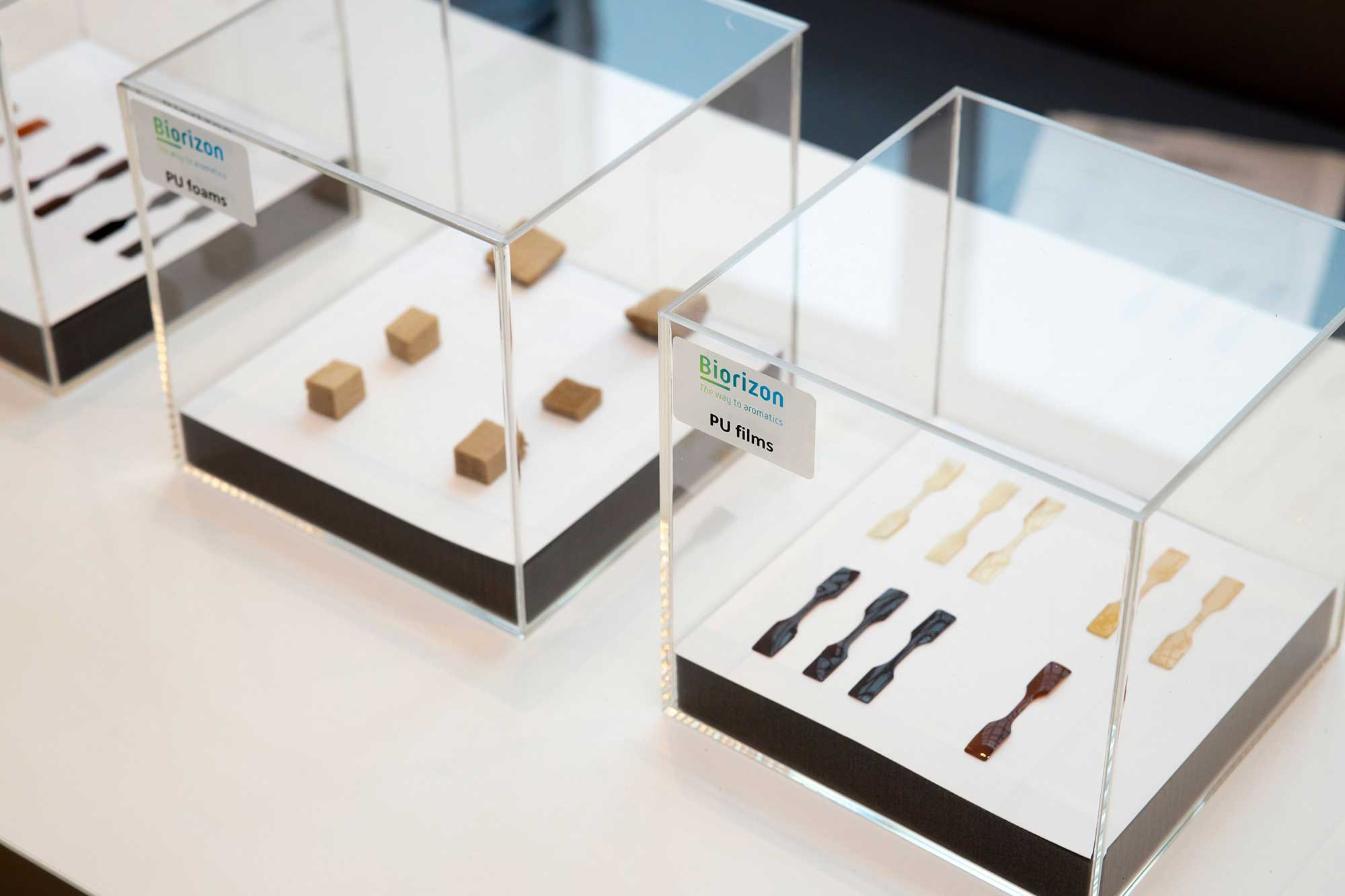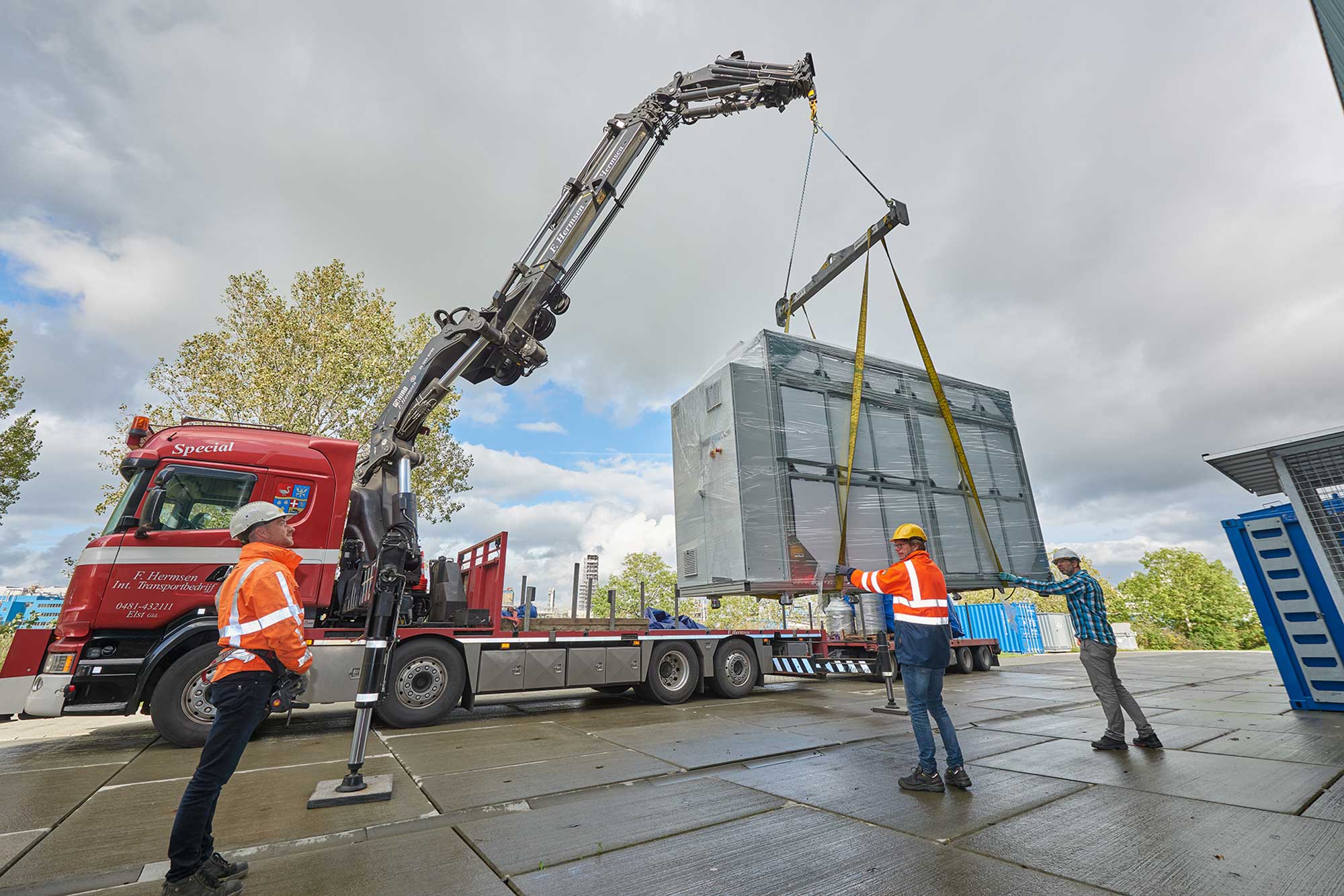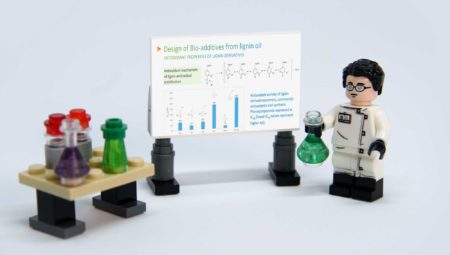Biorizon is the most advanced and valued bio-aromatics research programme throughout the world, initiated by TNO and VITO in collaboration with the Green Chemistry Campus in Bergen op Zoom. It is no surprise then that the annual event was visited by more than 300 participants of more than 25 nationalities throughout the world. They fully exploited the extensive networking opportunities provided by the Biorizon community, and in the plenary webinar and parallel sessions were also updated by the managers of Biorizon’s three directions of research or ‘Horizons’: the production of bio-aromatics through means of thermochemistry, from sugars and from lignin. In addition, the keynote presentation was provided by Wilfried Blokzijl of Unilever who emphasised the importance of sustainable innovations with Unilever’s Clean Future vision.
Thermochemical Horizon
The development of technology and applications based on pyrolysis and the gasification of biomass and other recycled flows are key themes within the Thermochemical Horizon. Last year a pilot lab was set up at the Green Chemistry Campus with a permanent employee and support from the Netherlands Organization for Applied Scientific Research (TNO) in Petten.
In addition, in 2020 two new pilot installations were commissioned: one in Petten for the coproduction of BTX (benzene, toluene and xylene) through the gasification of biomass and one in Bergen of Zoom for the thermochemical depolymerisation of lignin (PYRENA) in combination with stepwise condensation (PYPO). These installations are capable of producing samples on a kilogram scale that can be used for application development. For BTX this primarily concerns applications in niche markets, such as flavourings and perfumes, while for lignin valorisation this, for example, involves the development of additives for bitumen, resins, coatings and raw materials for pesticides. More than five companies have currently started working on such application development projects. This is an important step in preparing for the next phase: the construction of demonstration plants.
Biorizon is still looking for industrial parties and knowledge institutes interested in the joint development of technology and applications.
Sugar Horizon
The Sugar Horizon further strengthened its patents portfolio in 2020. This not only results in expanding the number of available bio-aromatics, but it also facilitates the development of new production paths. As a result, TNO now has access to the best and most extensive IP portfolio for functional bio-aromatics in the world.
The focus is on functional bio-aromatics that improve the properties of end products, such as service life and UV stability. This primarily concerns the replacement of non-recyclable products from petrochemical raw materials, such as coatings and adhesives.
The Diels-Alders pilot facility constructed in Bergen op Zoom in 2019 is now fully operational and has already produced hundreds of kilos of samples. In addition, the first steps towards marketing have been taken with the creation of the spin-off Relement BV. This company devotes its efforts to the commercialisation of specific bio-aromatics such as hemimellitic acid (HMA) and 3-methylphthalic anhydride (MPA).
In the coming year, the focus of the Sugar Horizon will be on the validation of a fully continuous process at TRL 5 and the continued development of the versatile Diels-Alders platform to produce new types of functional bio-aromatics. The technology required to convert hemicellulose into furfural and specific derivatives using an integrated process will be further developed.
New partners that would like to contribute to these developments are more than welcome: biorizon.eu/community
Lignin Horizon
Lignin, the largest natural source of aromatic compounds, is known as a complex material, from which it is difficult to split off separate bio-aromatics. This makes its incorporation into applications difficult. In 2020, the Lignin Horizon demonstrated that the homogenisation of lignin into fractions helps make applications, such as the production of polyurethane (PU), much easier to accomplish. Other applications, for example, relate to adhesives, mastics, coatings and elastomers.
Various partners have since started working on application development. However, samples of lignin oil are still only being produced on a small scale (approx 100 grams). There is a need for larger volumes and this is why an innovative pilot installation is being developed capable of producing samples on a kilogram scale. The engineering phase of this LignoValue pilot project has since been completed. The installation will be built in 2021 and is expected to be operational by the end of that year.
The Lignin Horizon team is looking for partners that are interested in various aspects, such as the role of lignin bio-aromatics in polymers, the extraction of sugars from lignin flows, specific developments in the areas of PU, epoxy and acrylates, bio-aromatics with specific properties, such as antioxidants and substances that improve UV stability.
Application Centre
All Horizons are currently actively working with pilots and on application development. To be able to provide companies that want to start working on this with practical support, Biorizon, in cooperation with Circular Biobased Delta, will open a Biorizon Application Centre on the Green Chemistry Campus in Bergen op Zoom in the near future.
The Centre will have its own employees and will work together with parties on the development of applications by coordinating the use of facilities that are partly available in Bergen op Zoom, as well as elsewhere in the region’s network of application centres.
This article was created in cooperation with Circular Biobased Delta.
Image: Fotogrin/Shutterstock





